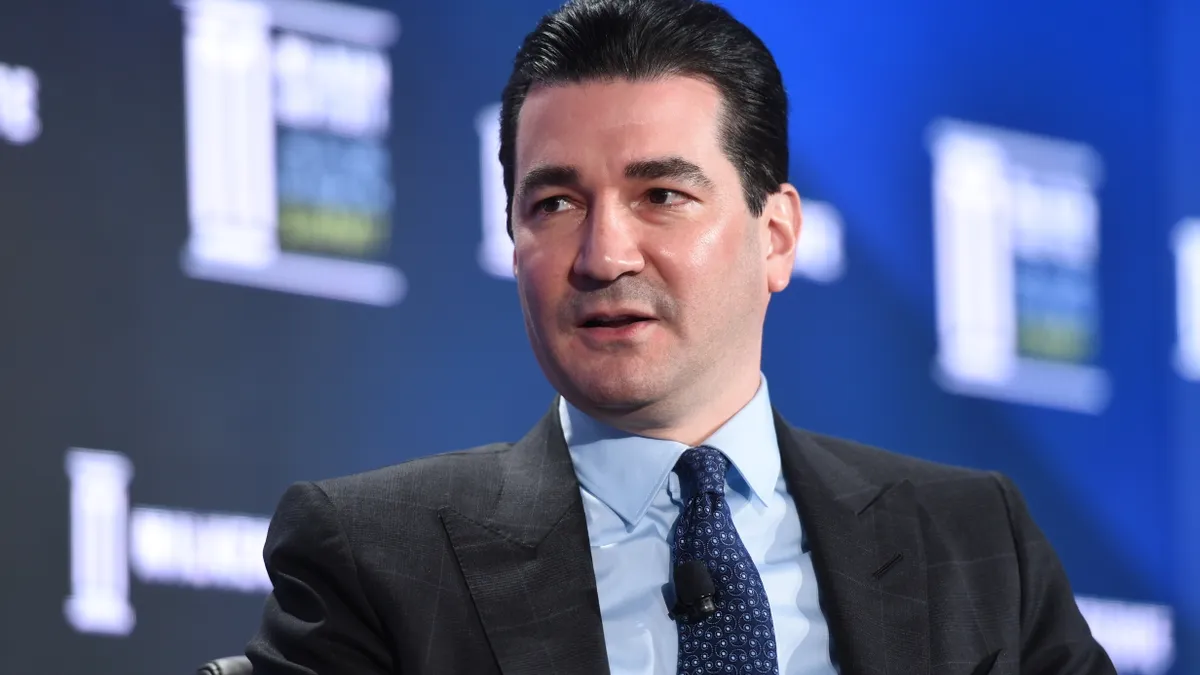UPDATE: April 12, 2019: FDA Thursday extended the comment period by 30 days for its request for feedback on its proposal to overhaul the 510(k) program to encourage use of more modern predicate devices. The new deadline for comments is May 22.
Dive Brief:
- FDA Tuesday released final guidance outlining its plan to boost use of the Abbreviated 510(k) program, which allows manufacturers to show a new device is substantially equivalent to a predicate device based on "data showing the new device meets the level of performance of appropriate predicate device(s)" rather than "reviewing data from direct comparison testing between the two devices."
- In addition, FDA also formally asked for feedback Tuesday whether and how to publicly distribute information on older predicate devices to encourage the use of newer predicates as it considers tightening the allowable window for predicate devices.
- Comments by agency officials suggest it may be pulling back from a November proposal that would limit medical device maker reliance on 510(k) predicate devices older than 10 years to those that have been more recently approved.
Dive Insight:
The actions come as the agency reviews several aspects of the 510(k) program, amid increased scrutiny of what critics call a lax regulatory process.
The FDA's move signals it is not interested in a sweeping overhaul of how the agency regulates medical devices, instead continuing to take deregulatory actions, a point echoed by one industry expert.
"In the face of investigative reports questioning medical device safety known as the 'Implant Files,' the FDA is continuing its ambitious regulatory reform plan to promote speedier access to innovative devices and diagnostics," Cowen Washington Research Group's Eric Assaraf wrote in a note to clients.
The final guidance notes in some cases it has been "more burdensome" for companies to "conduct testing against an appropriate device," and that the Abbreviated 510(k) program could help FDA cut down on review times for new devices.
Commissioner Scott Gottlieb said use of the path, rebranded as the "Safety and Performance Based Pathway," will be supported by future guidance that establishes the safety and performance criteria for certain device types.
FDA is also asking for feedback on a slate of ideas to cut dependence on older 510(k) predicates, an idea first put forward following a series of investigative stories from the International Consortium of Investigative Journalists last year critical of agency review.
Center for Devices and Radiological Health Director Jeff Shuren and Gottlieb said that "older predicates might not closely reflect modern technology used in new devices."
At the same time, it does not appear the agency is married to the idea of setting a previously floated 10 year-period governing when to disallow predicate use.
"We recognize that for some types of well-established technologies there is not a need for improvements, and reliance on older predicates would not only be appropriate but necessary," the FDA leaders said.
The agency asks if a list of devices or manufacturers that rely on older predicate devices should be made public, what time period is appropriate for determining older predicates, what other types of criteria could be used, if there are other actions to make 510(k) devices safer and if the agency should pursue new authority to allow it to declare certain devices as ineligible predicates.
We’re also seeking comment on steps we could take to further encourage development of innovations that enhance the safety of 510(k) devices, including whether we should post a list of #FDA-cleared devices that demonstrated substantial equivalence to older predicate devices.
— Scott Gottlieb, M.D. (@SGottliebFDA) January 22, 2019
Comments are due on the request for information on April 22. FDA said a notice will be eventually published in the Federal Register with information on how to submit comment on its final guidance.
The final guidance comes in spite of being unable to publish in the Federal Register — a move Gottlieb said on Twitter was supported by carryover user fees.
"These were guidance documents that, generally, were in very advanced stages of development, and close to being releasing before the lapse in appropriations. It's the case that new guidance development is being affected by the lapse," Gottlieb tweeted.
More than 40% of FDA staff is currently furloughed due to the partial government shutdown, with the number set to grow as user fee programs run out of funding. Gottlieb has said the medical device user fee program has about three months of carryover user fees remaining.











